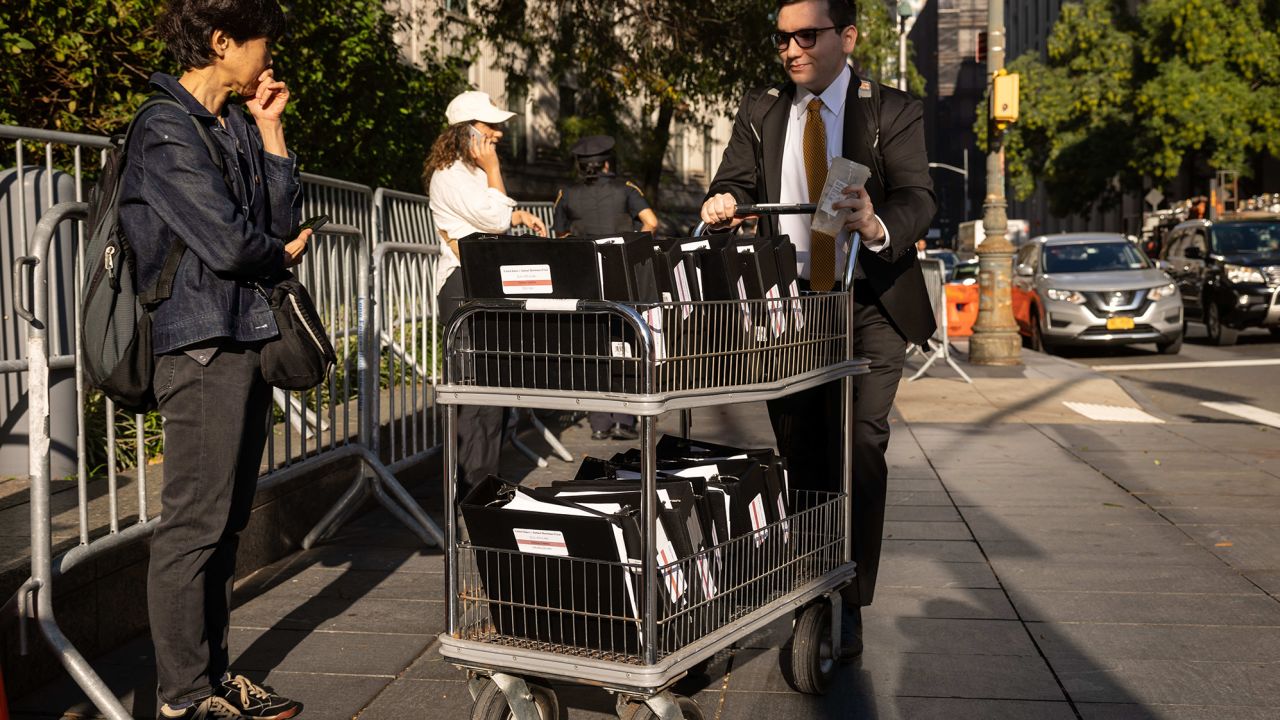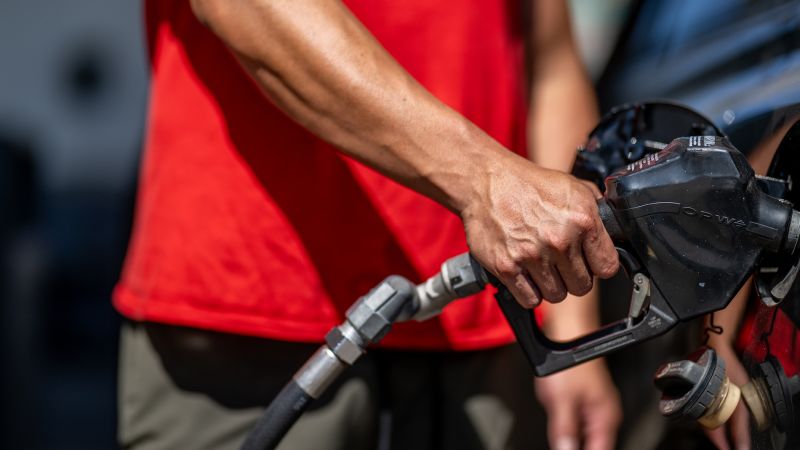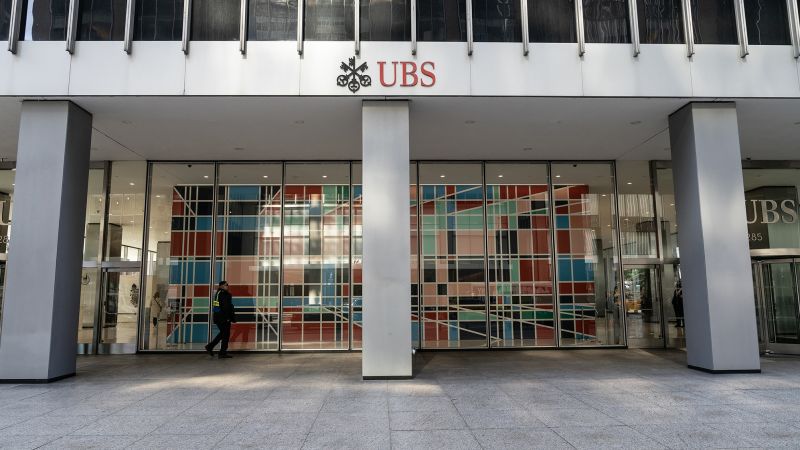CNN
—
Florida Gov. Ron DeSantis returned to South Carolina on Wednesday to reengage with Republican voters who last saw the GOP presidential candidate in mid-July.
In the nearly three months since his last visit, DeSantis has filled his calendar with appearances all across Iowa, a strategic shift to salvage his chances in the party’s first nominating contest on January 15 and ensure his campaign will survive to South Carolina’s primary more than a month later.
The risks of a near Iowa-or-bust approach have become increasingly apparent in the Palmetto State and elsewhere.
The campaigns of South Carolina’s homegrown candidates, former Gov. Nikki Haley and Sen. Tim Scott, have matured to become formidable contenders and serious obstacles for DeSantis to overcome as he seeks to convince Republicans he is the only candidate who poses a threat to former President Donald Trump for the GOP nomination. Haley, in particular, has seen a surge of interest and is ahead of DeSantis in early surveys of South Carolina.
Meanwhile, DeSantis has seen his support fall in New Hampshire, home to the nation’s first primary and another state the Florida governor has put on the backburner as he works to shore up support in Iowa. His last visit to the Granite State was more than a month ago, and New Hampshire voters have responded by considering other alternatives to Trump.
Still, the DeSantis campaign says New Hampshire and South Carolina are a priority. The governor will return to New Hampshire in the middle of October and he will make more stops in South Carolina this month as well. Spokesman Andrew Romeo said the campaign has maintained an “aggressive schedule” and “has been building solid support and unmatched infrastructure on the ground in South Carolina.” He noted the support DeSantis has received from local officials and members of the faith community from across the state.
“We look forward to building on this grassroots momentum in the weeks and months to come,” Romeo said.
DeSantis’ political operation announced Wednesday that it had raised $15 million over the three months ended September 30, though only $5 million of that haul was available to spend during the primary, according to a senior campaign official.
DeSantis allies insist there is time to make up for lost ground. Never Back Down, a super PAC supporting him, remains active in both states and has reserved airtime in New Hampshire media markets for the fall. DeSantis’ wife, Casey, was well received when she replaced her husband in late August at a South Carolina dinner as Hurricane Idalia barreled toward Florida.
“We had a little thing called the hurricane that hit us,” DeSantis said Wednesday in Spartanburg, South Carolina. “Duty calls on that. My better half came up.”
New Hampshire House Majority Leader Jason Osborne, who is supporting DeSantis, said he was not worried about the governor’s numbers.
“He’s the only candidate with a day job and the only one who has to fundraise because he’s focused on a full, to-the-end campaign. Meanwhile, the single state-focused people aren’t doing that right now,” Osborne said.
But veteran political operatives in New Hampshire and South Carolina have warned of the potential pitfalls of neglecting their states for too long. More GOP presidential nominees have won New Hampshire than Iowa in the most recent election cycles, and 10 of the last 11 nominees finished atop South Carolina’s primary.
“All the candidates will be well advised not to take South Carolina Republicans for granted,” said Drew McKissick, chairman of the South Carolina GOP and co-chairman of the Republican National Committee. “South Carolina Republicans take their job of choosing the nominee very seriously, and the candidates should too.”
Jim Merrill, an adviser in New Hampshire to past Republican presidential candidates Mitt Romney and Marco Rubio, said his state “demands a level of intimacy from the candidates” – something many Republicans in the state have yet to see from DeSantis.
“You gotta embrace New Hampshire and run a campaign here like you’re running for governor,” Merrill said.
DeSantis appeared prepared to commit considerable time to courting voters in South Carolina. He made a handful of early trips there, and, during his last visit, became the first candidate to file for the state’s primary. To Republicans there, he emphasized that Casey DeSantis had attended the College of Charleston and noted that his in-laws had put down roots in the state as well. He joked that he might temporarily move the family to South Carolina next year after New Hampshire votes.
“We spent a lot of time here over the years,” DeSantis said. “So I think it’s a great, great state for us.”
Those appeals, however, came just before a reckoning at DeSantis’ Tallahassee headquarters over early campaign cost overruns and messaging concerns. A week later, DeSantis slashed his staff by a third; and by the end of summer, he had replaced his campaign manager and reset his White House bid to focus on Iowa.
He has since made a half dozen trips to Iowa as he marches toward a goal of hitting all 99 counties. In another sign that the Hawkeye State is rarely far from DeSantis’ mind, he spent parts of Monday and Tuesday chatting with media there even as he made preparations to travel to South Carolina. And his campaign is also moving a third of its staff from Tallahassee, Florida, to Des Moines, Iowa, according to the senior campaign official.
Perhaps most concerning to DeSantis backers is that the shift toward Iowa at the expense of other early nominating states has so far not produced a noticeable spike of support for him in the Hawkeye State. DeSantis trails Trump there by some 30 points – a margin that remains virtually unchanged since he promised to visit all 99 counties. DeSantis has stopped in 58 so far.
DeSantis said Tuesday that the work he is putting into the state will pay dividends in the long run.
“We’re going to a lot of places that are more rural, that a lot, pretty much every other candidate is going to ignore,” DeSantis said. “Those are things that I think that, you know, may not necessarily wrap up, show a big difference overnight in a poll or something.”
Meanwhile, the latest CNN/University of New Hampshire poll showed he is going the wrong direction in the Granite State – a 13-point drop from the prior UNH survey in July. Trump continues to lead the pack., while DeSantis is running about even with tech entrepreneur Vivek Ramaswamy, Haley and former New Jersey Gov. Christie, all of whom have spent far more time in the state lately.
The decline stems from a sharp drop-off with New Hampshire moderates; 26% backed him in July, but that fell to 6% in the most recent poll. And it comes as DeSantis has attempted to run to the right of Trump, particularly on abortion. DeSantis has forcefully defended his state’s six-week abortion ban as well as one recently signed by Republican Iowa Gov. Kim Reynolds amid criticism from Trump. He recently promised to support restricting the procedure after 15 weeks if elected president, a position that puts him at odds with many moderate Republicans in New Hampshire
South Carolina state Sen. Josh Kimbrell, whose district DeSantis will visit Wednesday, said the makeup of his state is closer to Iowa’s than New Hampshire’s. Like in Iowa, evangelical voters are an influential voice in choosing the nominee, but Kimbrell said he expected DeSantis to draw support from fiscal conservatives and those close to the military community.
“He may not win New Hampshire, but no big deal,” Kimbrell said. “He’ll come down here. I think he wins here, if he wins in Iowa, so I think he gets two out of the early three, and then I’m looking forward to Super Tuesday.”
Though South Carolina has not received the same attention from candidates as New Hampshire and Iowa, DeSantis faces a unique challenge in the home state of Haley and Scott. Both have received renewed attention from donors as the Florida governor has attempted to find his footing. Trump, meanwhile, has begun taunting Haley with a new nickname and has claimed his former United Nations ambassador doesn’t have the “talent or temperament” to be the next president – which Haley has taken as a sign that she is a growing threat to the field.
DeSantis said Friday he was “not at all” concerned with Haley’s campaign.
But Dave Wilson, a South Carolina political strategist close to the state’s evangelical community, cautioned that all 2024 contenders should be.
“Never underestimate Nikki Haley, because she has an ability to pull out a win when you least expect it,” Wilson said. “She is gaining momentum. And momentum begets momentum. And she has historically built on momentum that she gains.”
Other wild-card candidates have the potential to alter the landscape in the states that immediately follow Iowa. New Hampshire Gov. Chris Sununu has signaled he intends to endorse in the primary, which would given him the opportunity to add an influential voice before voting begins there. Sununu has often touted the work of governors, leaving some to believe DeSantis or Haley might have an edge.
In a statement to CNN, Sununu stressed the importance of candidates making their presence felt in his state.
“Every candidate has to decide the strategy best for them, but New Hampshire will play a critical role in this nominating process as the First in the Nation presidential primary state,” Sununu said. “Granite Staters reward those who spend time here and connect with them one-by-one.”
Another unknown is how the race will change over the nearly monthlong gap between when New Hampshire is expected to hold its primary and when South Carolina Republicans vote on February 24. Haley’s or Scott’s movements will be closely watched to see how the outlook there changes if one or both drop out. Regardless, the political universe is likely to descend on the state during that period. DeSantis’ campaign has made no secret that it sees the later primary date as an advantage for him.
McKissick, the South Carolina GOP chairman, called the placement of his state’s primary on the Republican calendar the “last shot of adrenaline” before Super Tuesday.
“It’s the last stop on the one-state-at-a-time merry-go-round,” he said.
This story has been updated with additional information.














